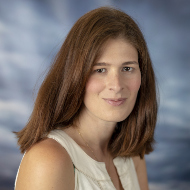To read academic writing is almost certainly to suffer. Yes, the ideas are likely complex. But the way many scientists choose to write about their work makes it even more difficult to understand. Passive voice, overly flowery or needlessly austere language, and sentences that run on and on are, unfortunately, the norm. As a result, the next generation of scientists can come to imitate such bad writing for want of any better models.
It doesn’t have to be this way. The sentence “After being assessed for body mass and height to apply our allometric formula, patients were supplied with one of a possible four dosage levels, with double-blind methods being strictly adhered to” could easily be shortened to “Using a double-blind method, we gave each patient one of four treatments, scaled to their height and weight.” While both provide equivalent content, the shorter example allows readers to comprehend more quickly and, perhaps, to be able to replicate the methods more closely.
When communicating science to the general public, scientists must make their writing even more accessible. In addition to crafting pieces that are understandable, scientists must consider the reader’s background and point of view in order to drive interest in science or effect change in attitude. For many scientists, writing a piece that resonates with the public means first thinking about their work in novel contexts—such as how it may affect policy or broader human health. Scientists must also explain difficult concepts to an audience in a way that is understandable but not patronizing.
NCSE is committed to helping graduate students communicate the science of climate change and evolution effectively. Through our Graduate Student Outreach Fellowship, this next generation of scientists spends a year exploring how best to engage their communities in hands-on activities and immersive science experiences. While these local outreach efforts can be incredibly effective at leveraging community context to help the public understand difficult science, they are limited in their ability to reach a broad, national audience. For this reason, we also encourage fellows to write about their science in a series called “Theory to Practice.”
“Theory to Practice” articles challenge the fellows to combine scientific literature with their understanding of how the science is applied. We also encourage fellows to explore multiple formats of science writing, including expert interviews, infographics, and personal narratives. After choosing a topic, each fellow writes several case studies and then works to find a narrative thread that connects the pieces and makes them understandable to a broader audience. Annie Stoeth, a doctoral student at the City University of New York, decided to showcase the complexity of the nation’s growing trash issue by asking a single, resonant question, “Is recycling worth it?” Through her piece, readers explore the numerous alternatives to recycling and what the science says about their value. By asking a simple question, Stoeth was able to provide an accessible look into a complex, and growing, problem.
For other fellows, writing “Theory to Practice” can be a way to combine their academic research with outside interests. Christie Vogler, who worked at the Iowa Children’s Museum while pursuing her doctorate in anthropology at the University of Iowa, chose to explore the science behind learning through play. In her piece, she interpreted some of the dense psychology and educational theory about the science of play through the lens of her experiences at the local science museum. Catherine Henry, a fellow at Michigan State University, found her own love of forestry and outdoor education to be the link between all her case studies. Through tales about restoration efforts in her local Lansing, Michigan, forests, she makes an impassioned argument for place-based climate change education.
For many fellows, the most difficult part of the writing process was feeling confident in writing about something slightly outside their own research. Abigail Howell at Arizona State University studied issues surrounding genetic literacy throughout the fellowship and wanted to understand how these issues manifested in K-12 education. Her “Theory to Practice” project thus meant stretching herself not only to conduct interviews with teachers but also to tackle the labyrinthine Arizona state science standards. Through her work interpreting them and incorporating the feedback of experts, Howell has learned how to write better for the public and in her own academic work.
The push for clarity in academic writing is slowly increasing. A growing number of new scientists are choosing to prioritize writing with public accessibility in mind—but they are operating in a system that can work against their efforts. NCSE wants to encourage effective science communication both in academia and to the broader public. “Theory to Practice” helps our Graduate Student Science Outreach Fellows develop a skill set that will allow them to communicate with confidence and clarity throughout their academic careers, for any and all audiences.


